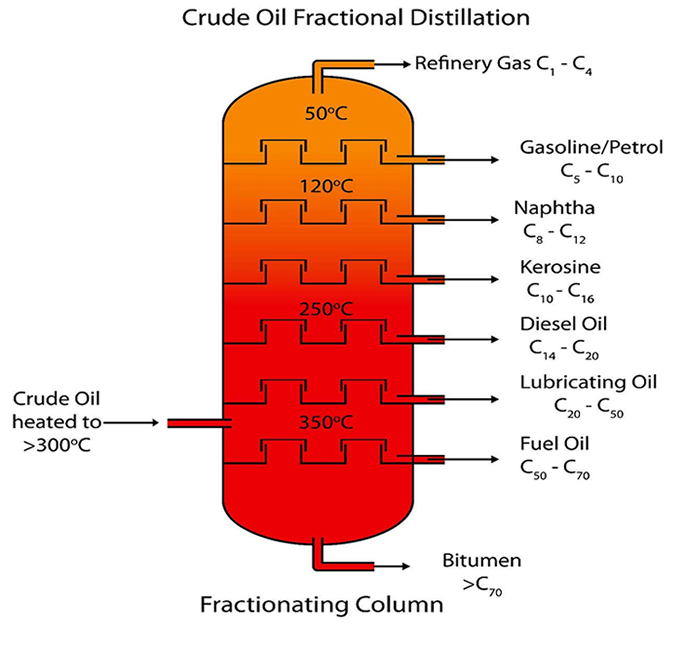When the diesel engine lubrication system is working normally, the oil continuously circulates in the engine, lubricating the friction surface of each machine part, taking away the grinding debris and heat, and lubricating, cooling, cleaning, sealing, and rust prevention to ensure the normal operation of the diesel engine. However, with the increase of service time, the filtering capacity of oil filters will gradually decrease, and more and more harmful substances will be found in lubricating oil, such as water and fuel leaking into lubricating oil, wear products of parts movement, oxidation products in lubricating oil, etc. The presence of these harmful substances changes the original properties of the lubricating oil, causing the lubricating properties to deteriorate gradually, the engine wear is increased, and an accident may occur.
The oil metamorphic gel deposits on the top of the combustion chamber and the piston, forming carbon deposits causing the engine to burn abnormally. Adhesive oil adheres to the piston ring and the valve stem, which can cause these parts to stick and stick, which aggravates the wear of various parts of the engine. The organic acid formed by the deterioration of the oil makes the acid value of the oil increase, and the parts are corroded and rusted (the lead bronze bearing is the most serious). The sludge formed by the deterioration of the oil is the result of the mixing of water and oil. It condenses in the oil pipe, which not only increases the resistance of the oil flow, but even blocks the oil circuit, making the lubrication of the diesel engine useless.
- The cause of deterioration of lubricating oil
- Lubricating oil is thermally oxidized, which will produce colloidal and carbon residue, hinder the movement of the piston, and even cause the piston ring to stick in the ring groove, causing poor sealing and overheating of the machine parts, causing serious wear.
(2) When the engine is working, a part of the combustion products are combined with the condensed water in the cylinder to form an acidic substance mixed lubricating oil, which has a corrosive effect on the metal parts.
(3) The mechanical impurities such as sand in the air, metal chips worn by the machine parts, and carbon residue after burning are mixed into the lubricating oil, which will accelerate the wear of the machine.
(4) If the fuel supply of the diesel fuel injection pump is too large, the oil supply pressure is too low, or the injector is dripping or atomized, the diesel in the spray tank will not be fully burned, and some of it will be along the cylinder wall. The lubricating oil is mixed into the oil sump, so that the viscosity of the lubricating oil is significantly reduced and the lubricating property is lost.
(5) Damage and leakage of cylinder bore wall. When repairing and replacing the cylinder liner, the interference is too large and the roughness is too low. The cylinder bore wall is crushed or the hard metal is ploughed out of the groove and clamped in the gap between the two walls. When the engine works, the cooling water will seep out from the gap and flow down the cylinder wall into the oil pan.
(6) The crankcase ventilator is blocked, the oil heat dissipation is poor, and the oil naturally forms colloid when heated.
- Identification method for water in engine oil
1, After the water leaks into the oil pan, the oil surface is obviously raised.
2, There is water in the oil, and the engine oil is diluted to be milky white with foam.
3, It is difficult to distinguish a small amount of water in the oil pan. You can run the engine for a few minutes first, and use the dipstick to drip the oil in the oil pan on the clean cotton wire, away from the oil tank, and ignite the cotton wire. Pure oil of good quality is easy to ignite, and when the engine oil with water ignites, it will make a sound of “zizi, baba”.
4, Identify the oil on the oil pan on a white paper. Engine oil with water quickly spreads on the paper, while pure engine oil does not spread.
- Identification method for impurities in engine oil
1, Repeat the grinding of the engine oil between the thumb and the index finger. The better engine oil feels that it has lubricity, less wear debris and no friction. If the finger has a greater sense of sand friction, it means that there are many impurities in the engine oil, and you can’t reuse them. You should replace the new engine oil.
2, Take a clean white filter paper and drop a few drops of oil on the filter paper. After the engine oil leaks, if there is black powder on the surface, touch the hand with a feeling of resistance, it means that there are many impurities in the engine oil; Good lubricants are powder-free; they are dry and smooth by hand, and have yellow marks.
3, When the identification oil mixed with fuel in the engine oil is mixed with a large amount of fuel, it can be judged according to whether the odor, the viscosity is lowered, and whether the oil level is increased; Take a few drops of oil from the human oil inspection vessel, heat it to the standard temperature, and see if it can be ignited.

